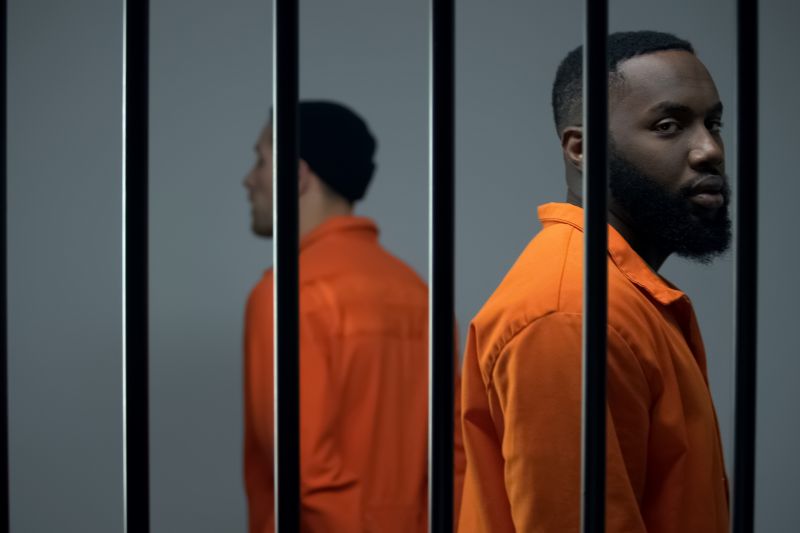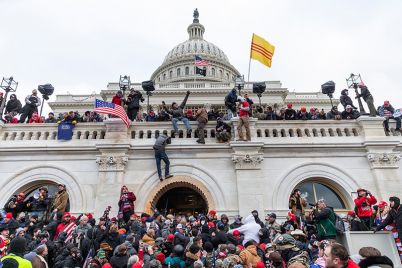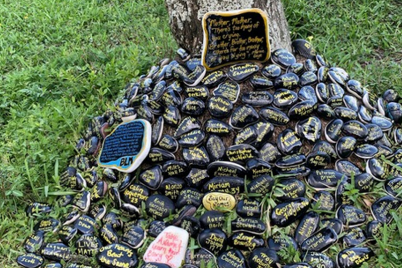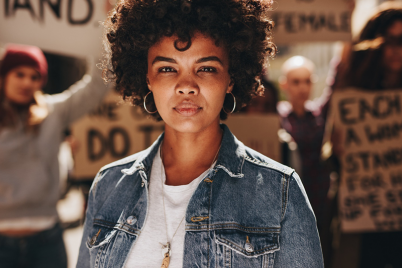The rate of incarceration for Black men is about six times the rate for white men. For drug-related offenses, Black men are twice as likely to be arrested.
BY YOLANDA GOODLOE COWART, Staff Writer
Have you ever been in a toxic relationship or situation for so long that you stopped seeing the abuse you were subjected to and started viewing the abuse as normal behavior or treatment? This is like the Black community’s relationship with systemic racism in the United States.
We’ve become so used to it that we’ve started seeing the systems, institutions, and policies set up against us as normal. Some of us have even blamed other Black men and women who don’t meet the impossibly high standards in systems designed to ensure they fail.
Systemic racism is so ingrained in the fabric of our country that not only is it keeping our community underrepresented, subjugated, and oppressed, but also causing us to fight one another. Black men and women have turned on one another, seeing the other as the problem in a very complex situation.
Women have been forced to step up, fill roles, and carry burdens they should never have. In a rush to identify the problem and provide a solution, Black men were made scapegoats without considering the systems that heavily impacted their ability to be productive or successful.
As the world grapples with returning to “normal” in the post-pandemic era, attention needs to turn to the plight of Black men as economic recovery efforts seem to sustain systemic racism that negatively affects the Black community, in general, Black men.
Why are employment rates so low among Black men?
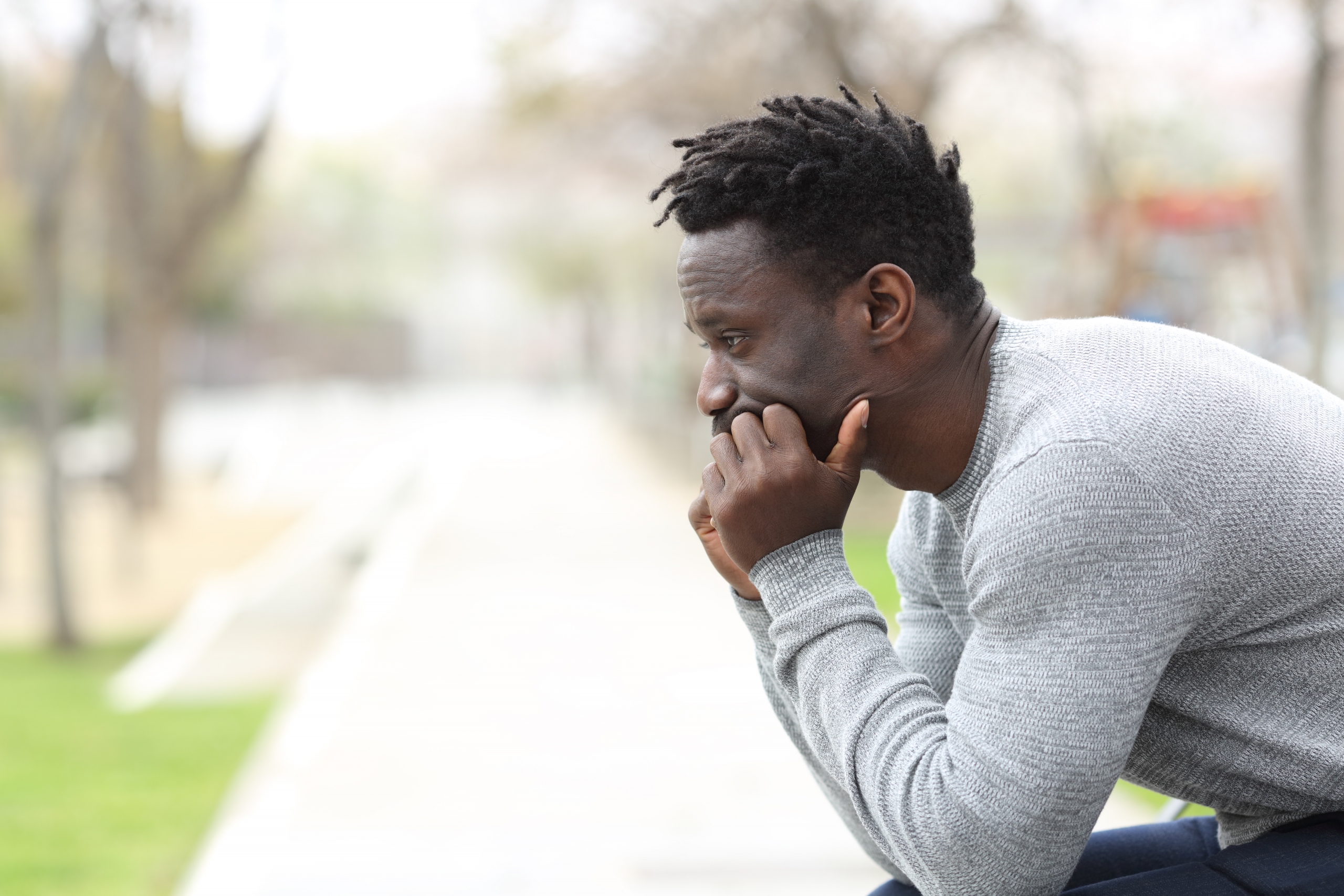
Estimates show that the median annual earnings for Black men are between $20K-$40K, about half of the yearly salaries for white men.
According to research, for the last 20 years, Black men have had the highest unemployment rates of any race and gender group. Estimates show that the median annual earnings for Black men are between $20K-$40K, about half of the yearly salaries for white men.
These rates do not even consider incarcerated men nor factor in the economic impact of Black men’s higher mortality rates. If those factors were to be accounted for, the job gap would increase about three to four times. The income deficit resulting from the unemployment rate of Black people would rise from the previously estimated amount of $30 billion to $50 billion annually.
There are multiple reasons for such high unemployment rates among Black men. As a group, Black men are not as educated as other demographics. They also lack employable work skills, many do not possess a driver’s license, and are more likely to have criminal backgrounds, in addition to the usual discriminatory practices that make it difficult for Black people to get a good job.
While facing discrimination is part and parcel of the Black experience in America, the discriminatory practices in the labor market are so prevalent that studies show that Black men without criminal records receive job callbacks at around the same rate as white men with criminal records.
These factors ensure Black men remain unemployed or in low-paying jobs in industries such as leisure and hospitality, wholesale, and retail, essentially front-line jobs.
As we know, many people working these front-line jobs were either exposed to and caught COVID-19, thus unable to work, or were let go because the company closed or because of COVID restrictions. Consequently, the job market is a cycle of unemployment circling Black men.
The plight of the African-American male in the United States
Many Black men face the choice of working minimum wage jobs with no benefits or turning to a life of crime. To be fair, unless one has an acute sense of morality and a strong support group, the lure of resorting to crime to live comfortably can prove to be too much to resist.
You may think this an oversimplification of the plight of African-American males, but this is the sorry state of affairs. Black men must battle systems that keep them perpetually in poverty.
Black men are overrepresented in the criminal justice system. The rate of incarceration for Black men is about six times the rate for white men. For drug-related offenses, Black men are twice as likely to be arrested.
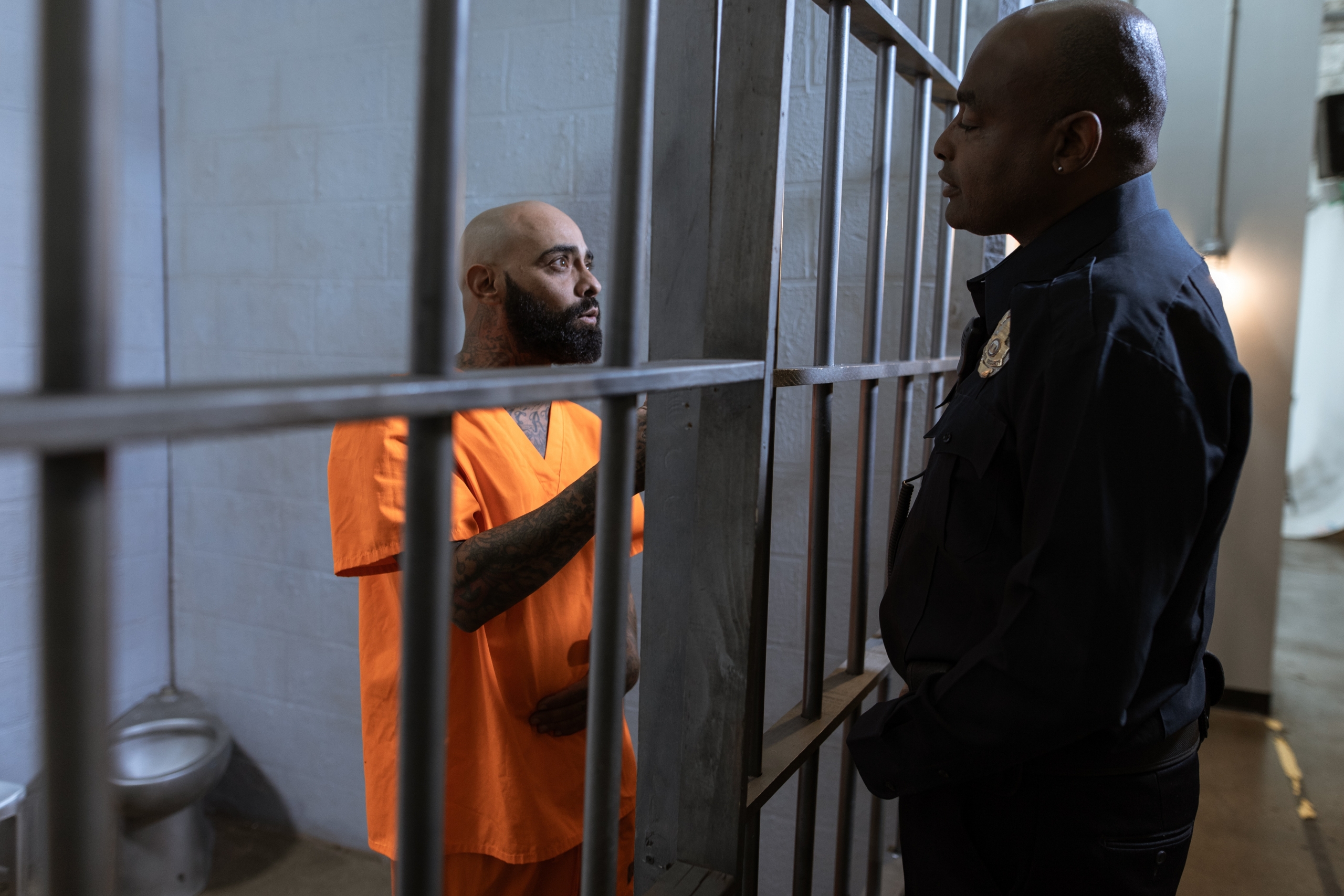
Estimates show that about one-third of all Black men are likely to be incarcerated at one time or the other.
Ironically, studies reveal white people commit more drug offenses. In 1988, Black people were arrested on drug charges at five times the rate of white people and received longer sentences for their crimes.
Black men are more likely to be the victims of implicit bias. They are often stereotyped and falsely perceived as thugs or criminals. NFL football player Richard Sherman was depicted as a “thug” in his postgame interview following the National Football Conference (NFC) Championship game. He did not use vulgar language or act aggressively. His mere physical presence and loud voice led to him being perceived as a thug.
Not only do these false perceptions harm our community, but they are also dangerous and can result in the loss of lives.
Black men have a difficult time getting hired. As mentioned before, the unemployment rate for Black men is higher than the rate for any other demographic. Many factors, such as a lack of education and employable skills, contribute to Black men struggling for employment that pays a livable wage.
Other factors, such as high child custody rates and chronic health challenges, also make it difficult for men to continue being a part of the labor force that offers nothing better than minimum wage jobs with no additional benefits. This invariably leads to economic inequality in the Black community.
Generally, Black people have higher morbidity and mortality rates than any other demographic. Poor health and chronic conditions such as cardiovascular disease, diabetes, cancer and the general health inequity in the Black community help ensure life expectancy for Black men is far lower than that of white men.
When Black men work jobs that do not provide health insurance, they must pay out-of-pocket for the medical expenses they incur while visiting the hospital. On top of that, because these low-paying jobs often do not give their employees sick or leave days, they also lose their wages for the day if they take time off to seek medical attention. Many people choose to manage their conditions instead without medical treatment and proper care.
Estimates show that about one-third of all Black men are likely to be incarcerated at one time or the other. For Black men who dropped out of high school, two-thirds are likely to go to jail. If they do go to school, statistics show that they are disciplined at higher rates and receive harsher punishments than their white counterparts.
This systemic racism and many more challenges add to the economic inequality of the Black community. Not only is it demoralizing, but it also ensures our community stays perpetually distressed and unable to better our situation without support.
Ways to improve the outcome for Black men
To help rebuild our community, we must first realize that improving the outcome for Black men requires collective effort. Even if our community was united, we do not have the resources to stop the downward trajectory that Black men are on alone. We must reach out to partners, stakeholders, community leaders and elected officials.
But first, our community must join hands to support one another. There is a crisis ahead; if we do not act with unity, we will lose the war.
Police and prison reform must become necessities. We need to find out what our elected officials’ plans are in these key areas. Do they even have a plan for it? Is it a concern for them as well? What are their plans for our schools? If it isn’t a concern, they need to be voted out.
We must hold our elected officials accountable. They are supposed to work in the best interests of the community. We are the community they work for, and we must ensure they do their jobs.
For an effective change in our community that will lead to positive outcomes for Black men, federal and state laws and policies must change. Steps must be taken to reduce the unemployment rate in the Black community. Policies need to be implemented to address the health inequity affecting our people. Only when those changes are made can we hope for a positive outcome.
The plight of young Black men: The scars and the crisis
A study found that African Americans are imprisoned at five times the rate of their counterparts in apartheid South Africa. If you are unfamiliar with apartheid, it was South Africa’s harsh, institutionalized system of racial segregation that Nelson Mandela spent over 27 years in prison fighting against.
The situation in America is five times worse for Black men than men in South Africa during apartheid. Continued incarceration, rising unemployment rates, and poor education of Black men will continue to cripple our community.
If the issue of the employment gap alone was solved, there would be an additional $33 billion annually for the Black community. This would, in turn, reduce economic inequities prevalent in our community and increase generational wealth for our families.
Young Black men will suffer the most if the issue of systemic racism that prevents them from getting a quality education keeps them imprisoned and ensures they cannot financially support themselves and their families is not resolved.
Collaborating to end the plight of Black males
The future of our communities depends on everyone realizing there is a crisis facing African- American males and coming together to find a solution. As Dr. Martin Luther King, Jr. once said, “injustice anywhere is a threat to justice everywhere.”
We cannot afford to ignore the rumbles of trouble brewing because it is not directly affecting us now. We must unite to end the plight of Black males. Our elected officials need to push for reform.
We need to collaborate to end this injustice. Black men cannot be left to fight the battle alone.
Yolanda Goodloe Cowart is an author, small business champion, victim rights advocate, civil rights activist, and human rights defender in St. Petersburg-Clearwater.

